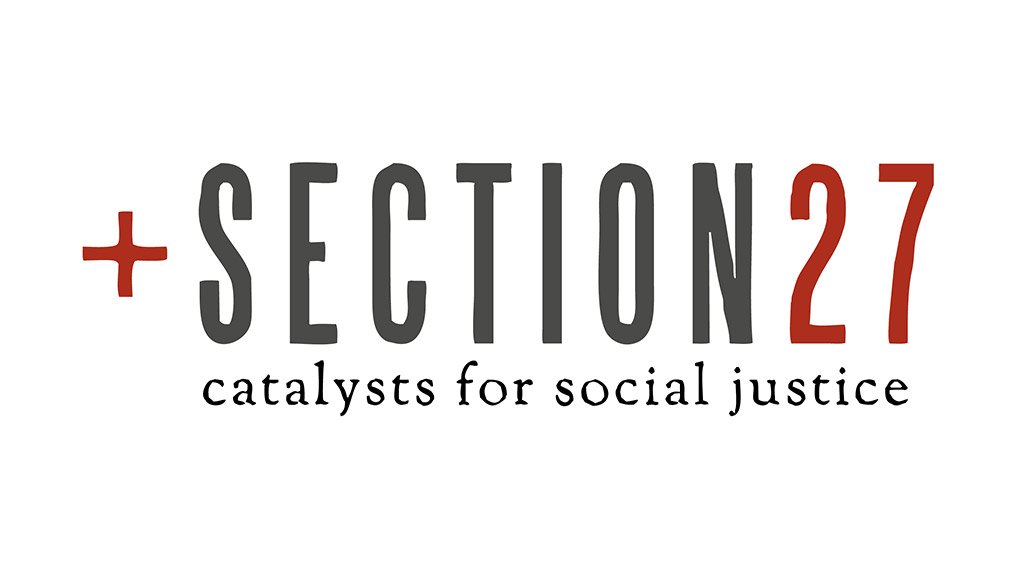Public-interest law centre Section27 has released its long-awaited sanitation report, offering an overview of the state of school sanitation in Limpopo and calling on the Limpopo Department of Education (LDE) and the Department of Basic Education (DBE) to address the issue.
The report, ‘Towards safe and decent school sanitation in Limpopo: The most fundamental of dignities’, finds that learners’ rights to dignity, privacy, equality and a healthy environment are being violated by poor sanitation conditions at schools.
Section27 attorney Samantha Brener tells Polity that the organisation hopes to create awareness of the ongoing situation in Limpopo and its impact on learners.
“We hope, through this, that the LDE and DBE will be forced to put in place a plan to address sanitation in Limpopo which is comprehensive, concrete, measurable, legally compliant, caters to the most urgent safety concerns and is properly costed and budgeted for,” she said.
Section27 investigated 86 schools in Limpopo and concluded that each school was lacking in sanitation services.
The report revealed that most schools either had no sanitation, plain pit toilets, undemolished old and new pit toilets, an insufficient number of toilets, toilets unfit for purpose or poorly maintained toilets.
In addition to the sanitation issue, many of the facilities did not have doors, bins for disposal of sanitary pads, toilet paper and nearby hand-washing facilities.
Over the years, there have been several reported deaths and severe injuries of pupils in relation to pit toilets at schools, including the publicised 2014 death of five-year-old Michael Komape, who drowned in a pit toilet at his school in Limpopo.
In August, President Cyril Ramaphosa launched the Sanitation Appropriate for Education (SAFE) Initiative, in an attempt to eradicate pit toilets at schools across the country.
Section27 says that while government has attempted to implement measures to resolve the sanitation crisis, none of the interventions have made a substantial impact.
The LDE has undertaken to develop a plan to improve the school sanitation in Limpopo, however, which Section27 believes to be “wholly inadequate and unlawful”.
The Limpopo High Court is now considering the reasonableness of the LDE’s plan to improve school sanitation in Limpopo.
THE ISSUES
The report highlights that one of the problems that government faces in relation to the crisis is its own statistics, which vary by source.
“…different statistics are being released each time new information is made public and this causes great concern that any of the information is indeed accurate,” said Brener.
The report argues that without a complete and accurate data set, full delivery of school sanitation is not possible. There are obvious negative consequences for planning and budgeting when the government’s data on schools is incorrect, it adds.
Section27’s report also reveals that the available resources for government to improve education, including providing sanitation facilities, has decreased owing to government’s austerity policy, which, Brener explains, prioritises government’s spending on debt and reduces spend on services such as education.
“There are other ways for the State to boost its spending to pay off debt, without cutting funding to social services, such as raising additional revenue, reducing interest rates, as well as to increase borrowing to boost the economy during a downturn,” she suggested.
Section27 also cites a lack of political will and understanding of the duties related to basic education rights as problems that have exacerbated the sanitation crisis in Limpopo schools.
“This is a devastating reality, particularly so for those South Africans who live in rural areas, such as rural Limpopo, away from the economic power hubs like Johannesburg. Their needs are often the most pressing and yet are often horribly ignored,” Brener points out.
RECOMMENDATIONS
Section27 has made key recommendations in its report, which it hopes government will implement to address the sanitation crisis.
One of these recommendations includes the development of a rigorous audit and a database of schools’ sanitation needs.
“We recommend the consolidation of data sets; and crucially, the removal of the discrepancies between the data sets mentioned in this report. It is essential that the data used for making decisions in order to comply with legal obligations for safe and decent school sanitation is an absolutely accurate reflection of the situation on the ground.”
The report also calls for transparency and accountability, through its recommendation that the data collected on the condition of schools in Limpopo be made immediately and publically available.
Section27 also wants efficient communication between schools, the district and LDE circuit officials and also calls for officials in these offices to be ordered to respond timeously and appropriately to communications from schools. It suggests that failure to do so should be considered a disciplinary matter.
Other recommendations include whistle-blower protection and an effective roadmap from the President and Basic Education Minister to alleviate the crisis at Limpopo schools.
The report also makes budget recommendations for national and provincial government, which includes increasing national resources, reprioritising existing funding and ensuring new public-private partnerships.
“The sanitation crisis in Limpopo schools is an egregious manifestation of a lack of political will and a lack of understanding of the duties that stem from the right to basic education. In order to remedy this, there is an urgent need for a new political approach that views every policy, budget and practice as one which is founded on this core constitutional duty.”
EMAIL THIS ARTICLE SAVE THIS ARTICLE ARTICLE ENQUIRY
To subscribe email subscriptions@creamermedia.co.za or click here
To advertise email advertising@creamermedia.co.za or click here











